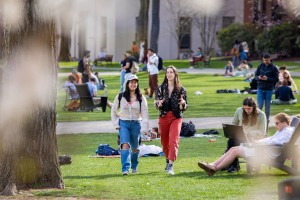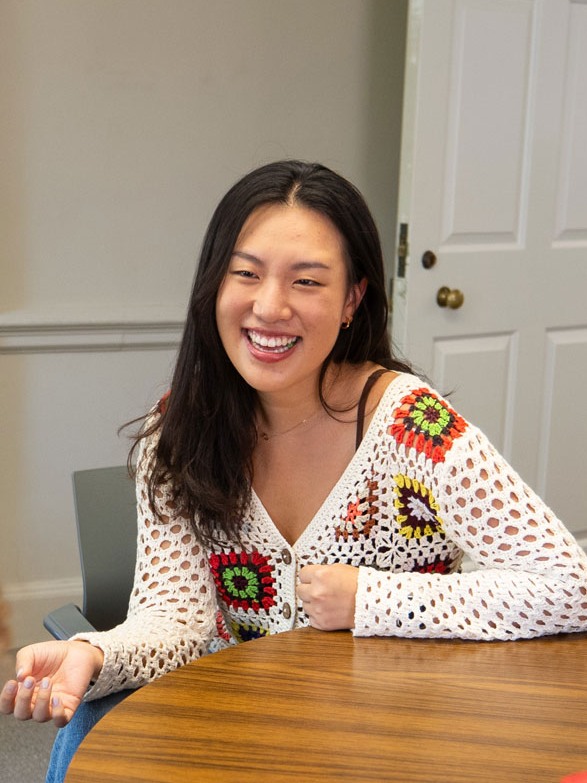Since her first year on campus, she has participated in the Swearer Center’s Bonner Community Fellowship. Through the four-year program, Im worked with the Providence-based nonprofit Center for Youth and Community Leadership in Education (CYCLE), collaborating with parents and students to advance educational equity in the city.
That experience introduced her to the concept of community-engaged research, which elevates input from the communities directly impacted by the research and its outcomes. It’s based on the understanding that researchers and impacted communities are partners throughout the process.
“Before that, I had this idea of research always taking place in a lab, with a white coat, and being very science- and data-driven,” she said. “While it was interesting, I wasn’t particularly attracted to it. But with CYCLE, I saw how I could create change firsthand through research.”
Originally a pre-med student, Im’s work as a Bonner Fellow inspired her to change course, particularly after an experience her sophomore year at Tougaloo College, a historically Black college in Mississippi with which Brown has an enduring 59-year partnership that has connected generations of students, faculty and staff from both institutions through academic exchanges, fellowships, research projects and other initiatives.
The weeklong trip to Tougaloo with her Bonner cohort gave her newfound perspective on the history of the Civil Rights Movement, an opportunity to engage with members of the Tougaloo community, an expanded lens on how impactful policy work can be for communities, and a chance to hear from a variety of people working in advocacy and careers in the common good.
Through these experiences, and the exploration enabled by the University’s innovative Open Curriculum, Im began investigating the ways community-engaged research can help shape public policy and advance public health.
“Medicine is awesome, and individual patient interactions are important, but I liked how policy work would allow me to look at problems from a bigger perspective,” Im said.
Harnessing policy to promote science, health and education
Further deepening her engagement with policy work, Im enrolled in the Brown in Washington semester internship program, spending Fall 2022 in Washington as an intern at the White House Office of Science, Technology and Policy.
She worked closely with government officials on policy issues, including an AI Bill of Rights and policy drafts related to artificial intelligence regulation and infrastructure legislation. Learning about AI was a new discipline for Im, and she was grateful for the opportunity to meet others working in the AI civil rights space.
“It was really interesting to see how we can balance different science fields to make policy more effective,” Im said.
She even had the chance to try her hand at helping to write a policy draft centered on a notice of funding opportunity as part of the Inflation Reduction Act, and after participating in a STEM summit, she said was inspired by the White House's efforts to bring community engagement to policymaking.

